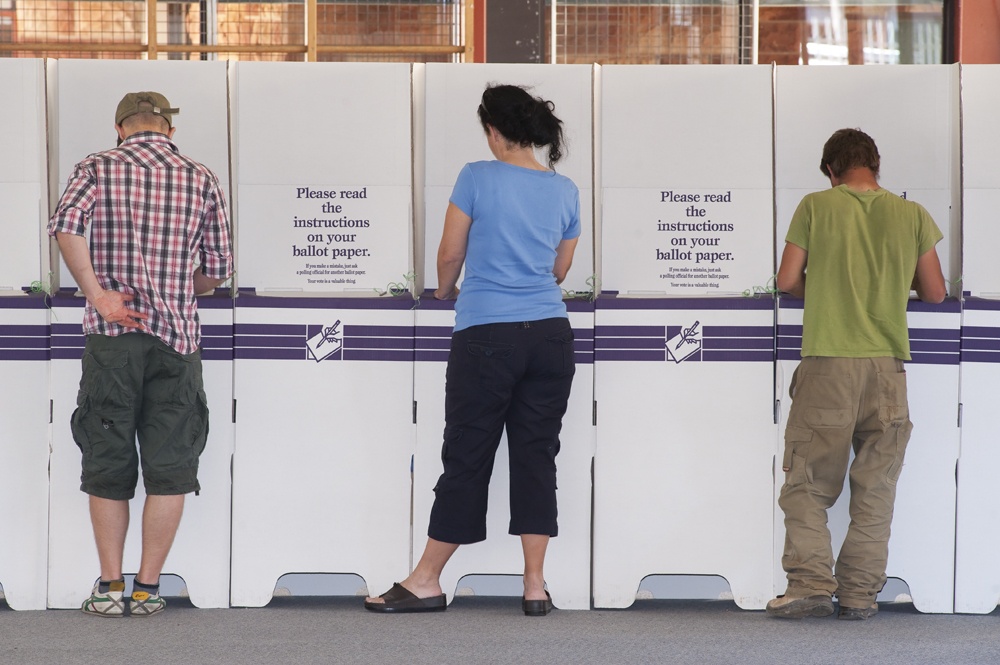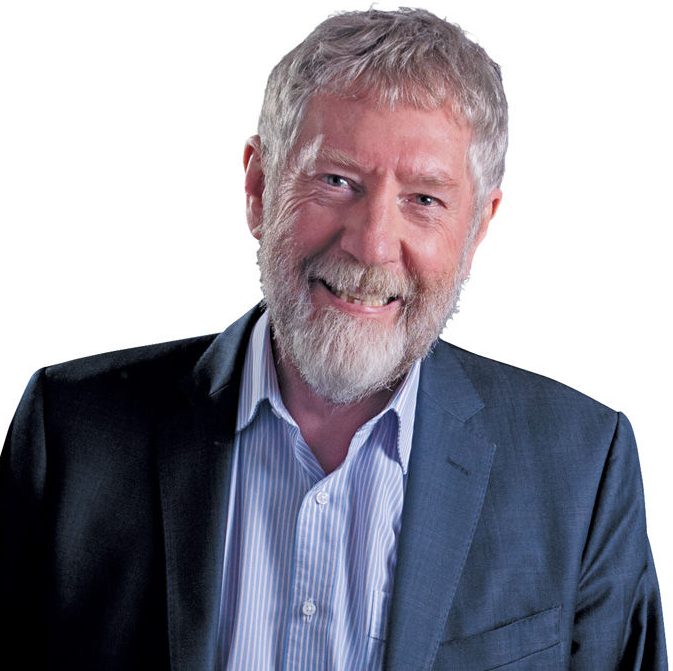
“The ACT is fortunate to have the Hare-Clark system, a highly sophisticated proportional representation system that really delivers on the notion of ‘one-vote-one-value’,” writes political columnist MICHAEL MOORE.
First the ACT, then Queensland and then the US. Elections are fundamental to democracy. But are all elections as democratic as each other?

Election systems in the US and the UK are amongst the easiest to understand. However, they are the least fair, the least democratic. These elections tend to focus on a couple of candidates, and the very presence of third or fourth candidates can lead to distorted results with “winners” who do not represent the majority of the people.
We recently saw this in France in the second runoff to the parliamentary elections, where third party groupings were forced to withdraw to minimise the chances of Marie Le Penn’s hard right group. And they were successful.
In the case of France, adoption of Australian-style preferential voting would mean these “strategic withdrawals” of candidates would not be necessary. It would also mean it would not be necessary to hold a second round of runoff votes.
A recent article by Jacob Shteyman, published in the Sydney Morning Herald, indicates just how important an understanding of preferential voting is for our community.
Shteyman wrote that “the Greens suffered a smaller swing against them of 1.1 per cent but shed half their seats due to the vagaries of the ACT’s Hare-Clark system”.
This was not a vagary of an election system. This is about careful and accurate mathematical calculations of the flow of preferences, in a system designed first and foremost to allow voters maximum choice. If it was a first-past-the-post system, it would be hard to understand how this could happen.
However, in a preferential system, it is not the first vote that is final… rather it is where the final preference lands between the remaining candidates favoured by the most voters.
Fortunately, preferential voting is the standard way of voting in Australia. It is one of the reasons that we do not have the hard swings to the left and right as has recently been the case in parts of Austria and Germany, and is a possibility in the forthcoming US election.
As ANU Professor Mark Kenny argued in The Conversation: “Australia’s institutional democratic architecture – compulsory preferential voting, Westminster parliamentary traditions and the Australian Electoral Commission – exerts a moderating influence on political discourse. Successful competitors have usually focused their efforts on winning across the middle ground.”
Since abolishing its upper house in the 1920s, the Queensland state Parliament has had preferential voting in single-member electorates, but not proportional representation. The result of this is that many people in the regional areas feel disempowered when Labor is elected, and those in Brisbane and other urban centres feel disempowered when the LNP wins a majority of seats.
The ACT is fortunate to have the Hare-Clark system, a highly sophisticated proportional representation system. Instead of half of the voters missing out, the proportion elected to the Assembly reflects the views of the community. Hare-Clark really delivers on the notion of “one-vote-one-value”.
The ACT system also randomly distributes the position of each of the candidates in any team (party) on the ballot paper. This is referred to as the Robson Rotation. Each of the candidates receives an equal share when a voter numbers 1 to 5 down the column, as each ballot paper can be different.
This ballot design still allows voters to put a particular party candidate above others. This was the case with Andrew Barr in Kurrajong and with Mark Parton in Brindabella. Conversely, even well-known candidates with a high profile can be “punished”, as was the case with Mick Gentleman in Brindabella. His seat was put in jeopardy because of the number of voters who decided not to put a number next to his name.
By contrast, the first-past-the-post voting systems, used in the UK and US to elect legislatures, are the crudest of the available democratic systems. It is common for half of all voters to be left without a representative that they support.
Thanks to the electoral college system, the upcoming US presidential election campaign focuses almost entirely on around five to 10 states that are “swing states”. These are not strongly committed to Democrat or Republican, while voters in the other 40+ states are taken for granted.
Using a war metaphor, the swing states are referred to as “battleground” states. The voters in this small number of states will determine the result of the November 5 US election, rather than the total of the national “popular vote”.
There are good and bad electoral systems around. In Canberra, we are lucky to have amongst the fairest of them all.
Michael Moore is a former member of the ACT Legislative Assembly and an independent minister for health. He has been a political columnist with “CityNews” since 2006.
Who can be trusted?
In a world of spin and confusion, there’s never been a more important time to support independent journalism in Canberra.
If you trust our work online and want to enforce the power of independent voices, I invite you to make a small contribution.
Every dollar of support is invested back into our journalism to help keep citynews.com.au strong and free.
Thank you,
Ian Meikle, editor





![For graphic designer Tracy Hall, street art is like any artwork, her canvas has been swapped out for fences and plywood, her medium changing from watercolours to spray paint.
A Canberra resident for 13 years, Tracy has been a street and mural artist for the past five.
Her first exploration into grand-scale painting was at the Point Hut toilets in Banks five years ago. “They had just finished doing up the playground area for all the little kids and the words [of graffiti] that were coming up weren’t family friendly,” she says.
“So I ended up drawing this design and I got approval for the artwork.”
Many of Tracy’s time-consuming artworks are free, with thousands of her own dollars put into paint.
@traceofcolourdesigns
To read all about Tracy's fabulous street art, visit our website at citynews.com.au or tap the link in our bio! 🎨🖌
#canberranews #citynews #localstories #canberrastories #Citynews #localnews #canberra #incrediblewomen #journalism #canberracitynews #storiesthatmatter #canberralocals #artist #streetart #streetartist #StreetArtMagic](https://scontent.cdninstagram.com/v/t39.30808-6/490887207_1225841146218103_6160376948971514278_n.jpg?stp=dst-jpg_e35_tt6&_nc_cat=106&ccb=1-7&_nc_sid=18de74&_nc_ohc=MUiEmedc4VAQ7kNvwHTUMX_&_nc_oc=Adk-5HjcsfQwB-n_l8zetmr0YqMaupGjrl2gNVCZdsmkxwn-oqjBg_V7pLtGggCE43s&_nc_zt=23&_nc_ht=scontent.cdninstagram.com&edm=ANo9K5cEAAAA&_nc_gid=2FoQKyFoWbYM5XXwvYdzOA&oh=00_AfFQmGRsiiKvgaBl5i0R0URNuuhMLm_F4ObJ6vYgAB4vKg&oe=680A3A94)



Leave a Reply